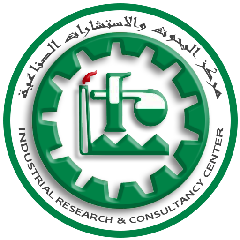The following paragraphs will go beyond the strategy’s main priorities and measurable outputs to explore general concepts that are important to be considered while working on improving and upgrading IRCC as well as the industrial field in Sudan.
Contribution to the Sustainable Development Goals 2030
In 2015, the international community led by the United Nations adopted 17 Sustainable Development Goals (SDGs) designed as a “blueprint to achieve a better and more sustainable future for all”. These goals include the pressing issues affecting all the people on our planet. Without getting into the discussion of the content of these goals, and whether they are realistic or progressive enough, it is nevertheless obvious why these goals should be primary concern of research institutes around the world as well as in Sudan. Thereby and in order for Sudan to adequately commit and contribute to the SDGs, and to utilize our connections to the rest of the world towards our internal development goals, we shall design our development programs and present our developmental discourse in connection with the SDGs. The 8th and 9th SDGs are respectively “Promote sustained, inclusive and sustainable economic growth, full and productive employment and decent work for all’ and “Build resilient infrastructure, promote inclusive and sustainable industrialization and foster innovation”. IRCC will work on linking its projects and programs with these two goals.
Transformative Industries and Sustainable Energy
IRCC is closely linked to the fields of transformative industries and sustainable energy due to the fact that all IRCC’s units and activities will contribute to these fields. Transformative industries cover a wide range of sectors that include all institutes and offices in the IRCCs structure, while the importance of sustainable energy for industry makes it a pillar of any active industry.
Rural Development and Industries
Rural development is of special importance in the Sudanese context as it is in the general African context. As ca. 70% of the population in Africa live in the rural areas, Sudan is not quite far off from that percentage. Rural areas also contain most of the resources necessary to initiate development processes. References mention that agriculture is the main source of income for 60% of the population, the sector also contributes 39% of the country’s GDP and includes the majority of its transformative industries. Many developing countries, such as Sudan, implement development models that prioritize urban areas. Accordingly, more people/workers migrate towards the urban areas as they – urban area – acquire an unfairly large portion of the country’s wealth and can therefor provide a relatively better quality of life . There is a vicious cycle of cities crowded beyond their capacities and empty rural areas with reduced productivity, and breaking this cycle requires serious thinking and work in rural development. It is important that IRCC and the Ministry of Industry prioritize and give special attention to the industries in rural areas.
Thinking in Systems
Systems can be briefly defined as sets of “things—people, cells, molecules, [machines, procedures, etc.]—interconnected in such a way that they produce their own pattern of behavior over time”.[1] The problems of our modern world require sociological and technological (or technosocial) solutions. These are mostly systems related problems where systems thinking can facilitate better understanding. In the field of development, including industrial development, we might not need new theories, institutions and approaches as much as we need to build new systems. Old systems have mostly failed, exhausted their purposes or have been turned obsolete due to historical development and changes in circumstances. Building systems requires comprehensive understanding of the phenomena at hand and the utilization of suitable theories, approaches and best practices.
